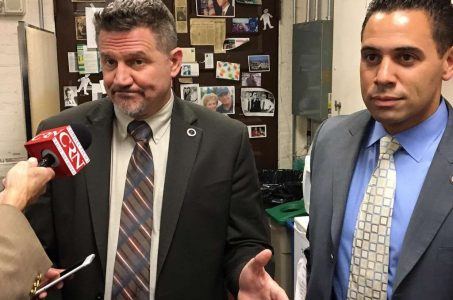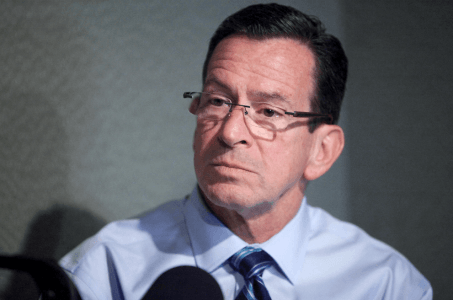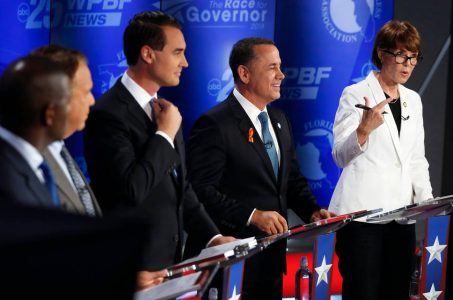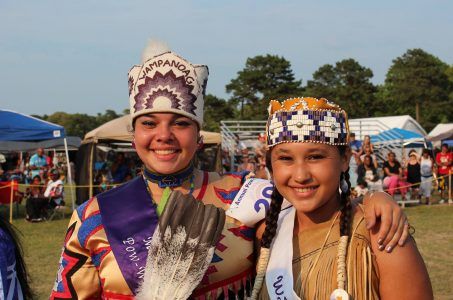Bill to Restore Mashpee Land Rights and Casino Ambitions Passed by US House, Despite Trump Opposition
Posted on: May 16, 2019, 07:25h.
Last updated on: May 16, 2019, 07:25h.
A bill that would secure the federal trust status of the Mashpee Wampanoag tribe of Massachusetts’ land was approved by the US House Wednesday.

The Democrat-backed HR 312 was approved by 275-146, in a vote broadly split across party lines, although 42 Republicans jumped ship. It faces a tougher test in the GOP-controlled Senate and the prospect of a possible veto by President Trump, who is not a fan.
The bill was pulled from a scheduled vote last week after Trump tweeted that Republicans should not back HR 312, calling it a “special interest casino bill” that was “unfair and doesn’t treat Native Americans equally.”
Disaster for Tribe
The tribe planned to build a $1 billion, Genting-funded casino resort on the land until the Department of the Interior reversed an Obama-era decision that took land into trust for the tribe.
“Taking land into trust” describes the process by which the federal government takes land by voluntary transfer and converts it into tribal land. This partially removes the land from the jurisdiction of the state, which gives the tribe autonomy to make decisions over how to tax, develop, and manage the land.
The decision nixed the tribe’s dream of a casino and deprived it of sovereignty, leaving it $500 million in debt to Genting, which had been bankrolling its operations.
I introduced this bill last Congress when we first heard rumors that the Department of Interior was going to, for the first time, reverse the position of the previous administration and refuse to defend the Mashpee Wampanoag’s right to their historic land,” US Rep. William Keating (D-Mass.) told the House Wednesday.
“They are the only tribe that has received recognition and then had it taken away from them,” he continued. “Now the tribe’s reservation is hanging by a thread and they’ve been left to defend their land on their own … It means being treated as a secondhand tribe with no future,” he added.
What’s Trump’s Beef with the Bill?
It’s not immediately clear why President Trump would concern himself with this relatively obscure bill, other than that it is backed by Sen. Elizabeth Warren (D-Mass.), whom he dislikes.
His past clashes with Native American casino operators have been well-documented. The growth of tribal gaming in the 1990s disrupted the Atlantic City casino market’s monopoly on the East Coast, posing a competitive threat to his casino empire at the time.
But he also sought to do business with tribal operators in the 1990s, such as the Agua Caliente band of the Cahuilla Indians in California, and the Paucatuck Indians in Connecticut, who agreed to pay him a management fee if he could help win them federal recognition.
Boston.com claims that the chairman of the American Conservative Association, Matthew Schlapp — whose wife, Mercedes, is director of strategic communications at the White House — has been whispering in Trump’s ear.
Schlapp is a lobbyist for Twin River, which operates two casinos in Rhode Island, both within an hour’s drive of the Mashpee land. According to Boston.com, Schlapp “focused Trump’s attention” on the casino bill by emphasizing Warren’s involvement — although the news website does not elaborate on how it came by this knowledge.
Warren was a vocal supporter of the bill when it was first presented to Congress late last year but has been silent since its reintroduction this year.
Related News Articles
Most Popular
Mirage Las Vegas Demolition to Start Next Week, Atrium a Goner
Where All the Mirage Relics Will Go
Most Commented
-
Bally’s Facing Five Months of Daily Demolition for Chicago Casino
— June 18, 2024 — 12 Comments
















Last Comment ( 1 )
IT SEEMS THAT IF NEMASKET INDIANS OF 1637 WERE RELOCATED TO THE PRAYING TOWN OF HOPE "PONKAPOAG 'NOW SAID TOWN CALLED CANTON MA. AND THIER IS ONLY NOW 1 % INDIANS IN CENSUS THIER NOW THEN THE WAMPANOAG INDIANS TRIBE OF THE MARSHPEE / TAUNTON. WHY TRUST HOLD THE TOWN OF CANTON MA THIER LAND AS WAS AND CASINO IN CITY PORTION . AND KEEP PROTECTED LANDS UNDEVELPED FOR THE NATIVES FOR INDIANS OF MULTIPLE TRIBES UNDESIGNATED AS WAS AS IS AS SHALL BE HOME LAND FOR HOMES OF INDIANS OF MASSACHUSETTS RECOGNIZABLE FOR THIER HOPE AND SOVERTY. RIGHTS .THEY WERE RELOCATED FOR NOW NEEDS TO BE RE RECOGNIZED AS THIERS ALSO.REGUARDLESS OF TIME OF RECOGNITION . THEY SHOULD BE RECOGNIZED AUTHORITY BELONGS TO INDIANS NOT PLEA BARGINS FOR DEVELOPMENTS. SHOULD NOT BE A CONDITON . IF THE COLINIST DID WHAT THEY WANTED TO THE INDIAN LAND THEN THE INDIANS SHALL BE ALLOWED TO DO TO RELOCATED LANDS AND ORIGONAL LAND SHARED TO SHARE IT BACK. ONLY HAVE 1% NATIVES TO THE CENSUS OR BRING ALL OTHER UNRECOGNIZED TRIBES TO JOIN THEM TO MAKE IT WORTH THE NATIVES EVOLEMENT FOR DOING THE RIGHT THING TO 100 % OF INDIANS OR GIVE THEM 100 5 THIER LAND BACK. iam said to be 1 16 th indian and have no family i trust so i feel for the ones left behind and forgotten . please lift the curse by 2039 thats 100 years after they got thier land town name re reversed is not the actually giving them back even a share . they learned to share so should the after people who took the nest must give them time to renest with there trusts of lands ,then the mountain of hope will mend itself from sufferings end.